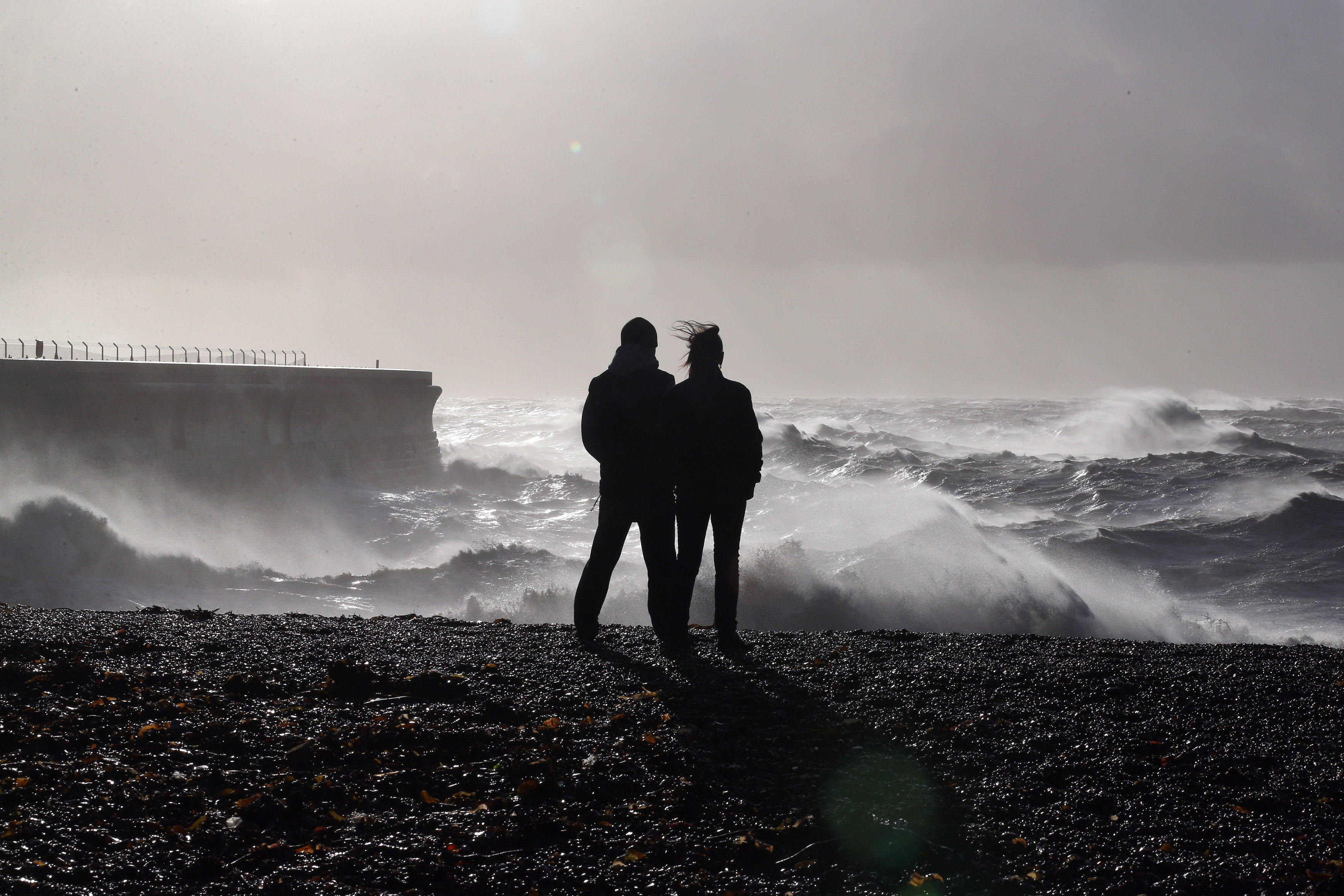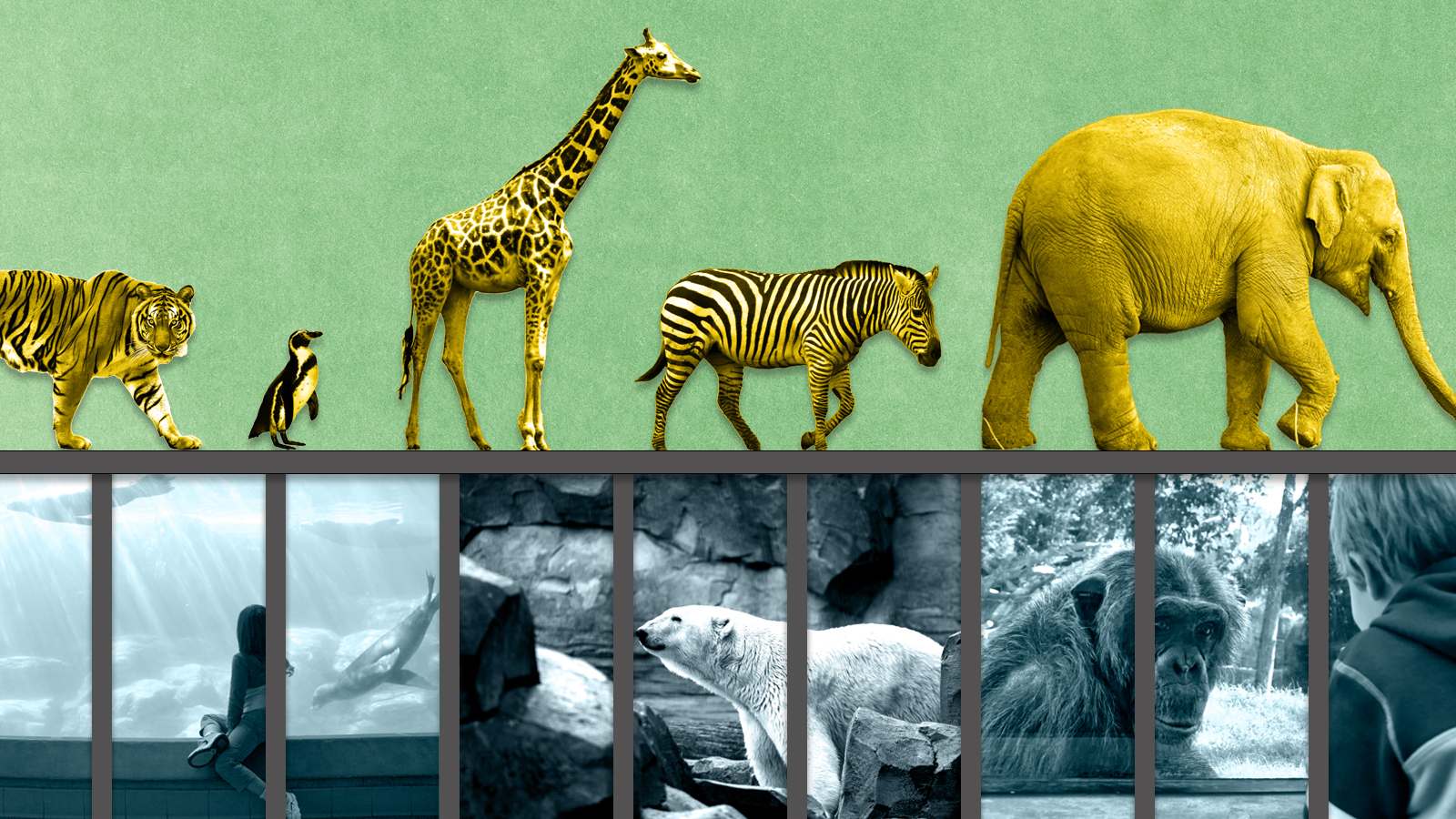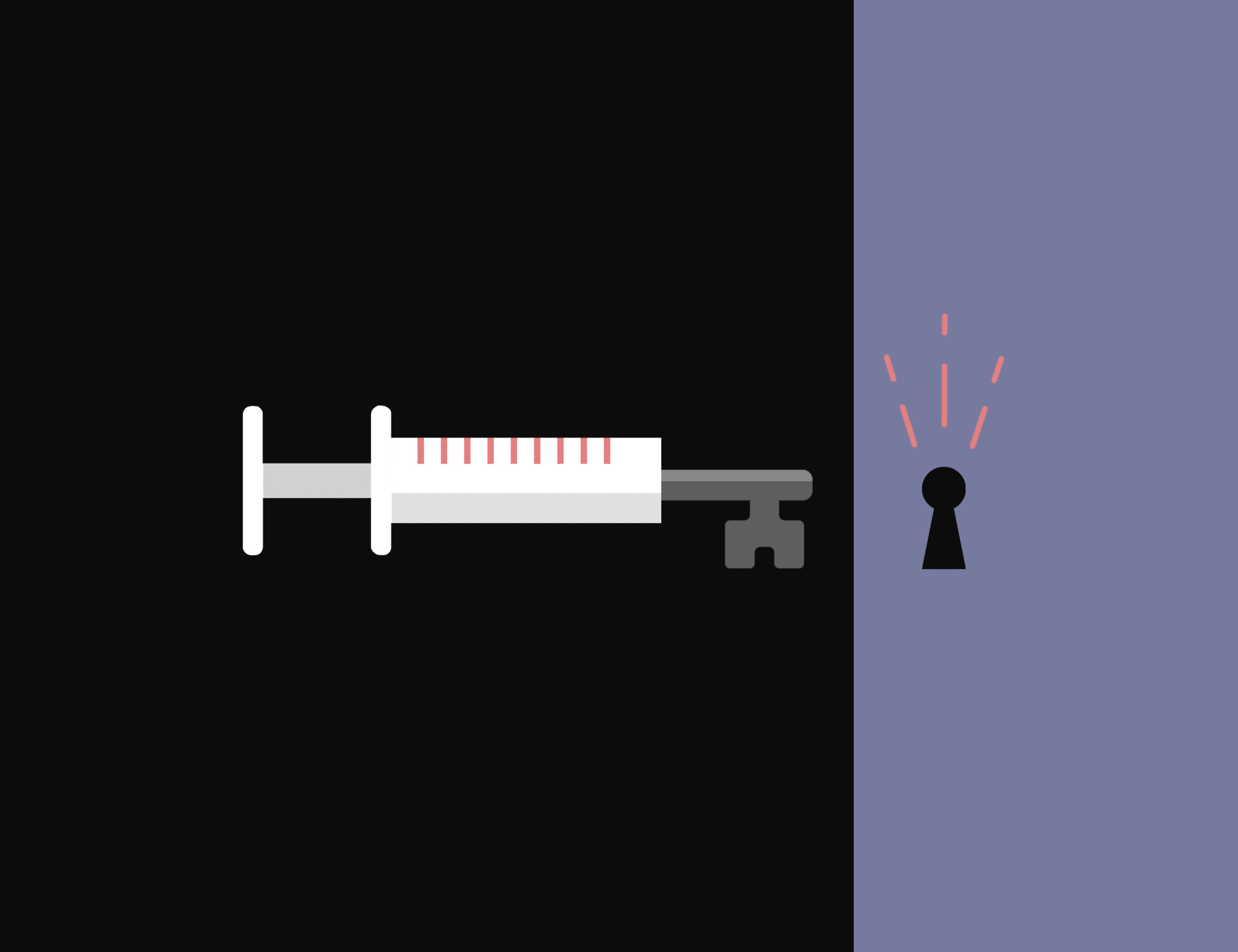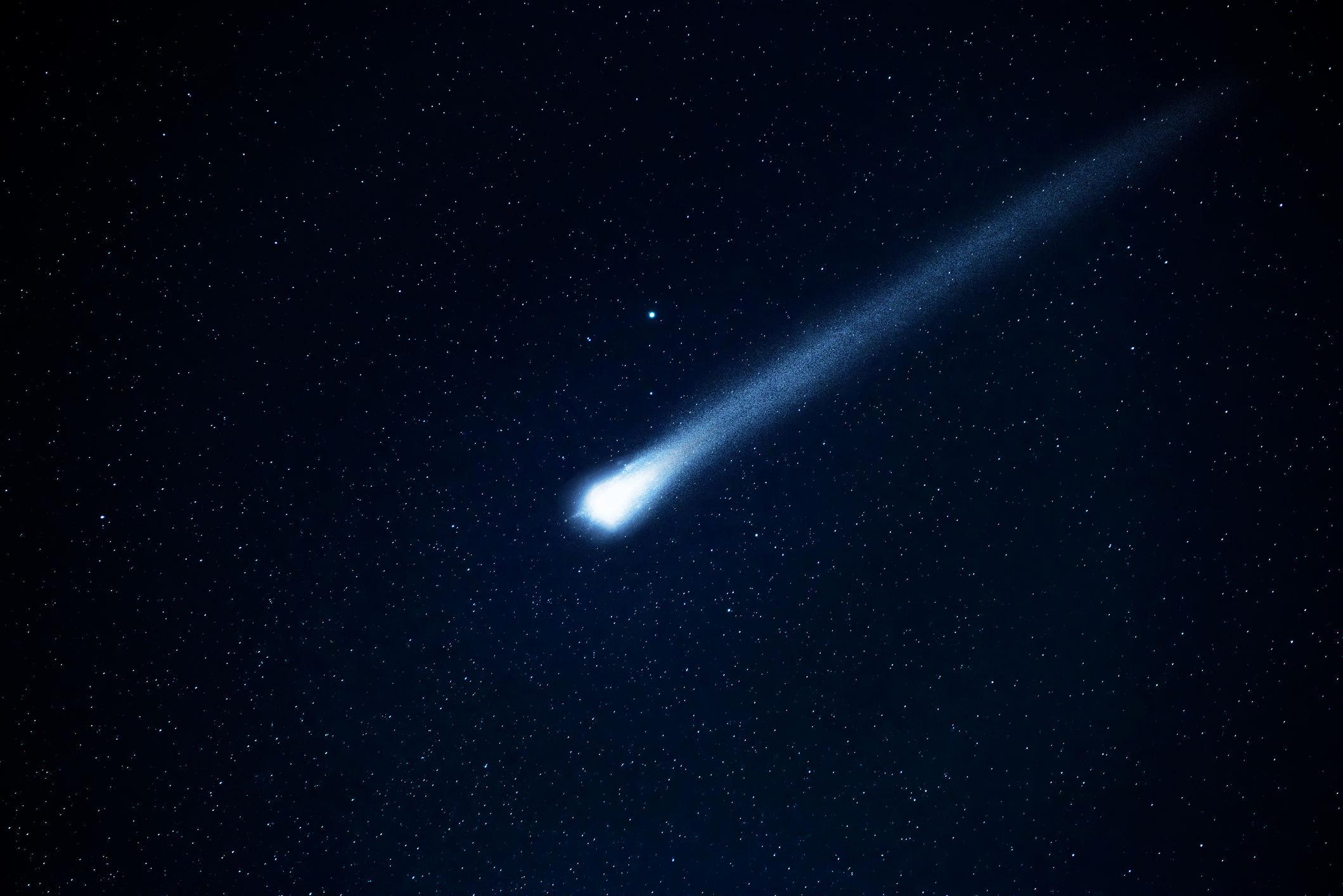Why childlessness can't stave off climate apocalypse
As a strategy for dealing with climate change, forgoing kids is garbage. Let me explain.


A free daily email with the biggest news stories of the day – and the best features from TheWeek.com
You are now subscribed
Your newsletter sign-up was successful
Nature is merciless in its indifference to human frailty. In a year where political systems the world over are popping rivets or collapsing outright, the most serious problem humanity has ever faced continues its relentless march. The laws of physics do not care that a deranged racist has gotten within shouting distance of the American presidency, and will not pause climate change to let us clean political house.
Sheer desperation has led to a resurgence of a '70s-vintage liberal trope: that maybe the problem is too much dang breeding. Since human life produces carbon dioxide, not having kids can prevent the rise of a key greenhouse gas. Hence people like Travis Rieder, who is traveling around advocating smaller families to help stave off climate apocalypse.
As a strategy for dealing with climate change, this is garbage. Let me explain.
The Week
Escape your echo chamber. Get the facts behind the news, plus analysis from multiple perspectives.

Sign up for The Week's Free Newsletters
From our morning news briefing to a weekly Good News Newsletter, get the best of The Week delivered directly to your inbox.
From our morning news briefing to a weekly Good News Newsletter, get the best of The Week delivered directly to your inbox.
First, there are already too many people for a reduction in new births to prevent catastrophic climate change. Think of total greenhouse emissions as the emissions produced by the average person's lifestyle (which varies depending on the country) multiplied by the total population. Depopulation is supposed to reduce total emissions by reducing the last term in the equation.
The problem is that the rise of average emissions will completely dwarf any conceivable population reduction over the relevant timeline. People live a long time, and demographic changes take generations to shake out. But we need to start reducing greenhouse emissions now, and as fast as we possibly can. If America did its fair share to reduce warming, it would aim for something like a 10 percent reduction in emissions per year for the next several decades.
About 2.6 million people died in America in 2014, or less than 1 percent of the total population. Hence, even a total cessation of new births — a literally impossible policy outside of dystopian science fiction, and far beyond anything advocated by this crowd — would not be remotely close to the necessary policy aggressiveness.
And it's not like birthrates are very high these days, anyway. Virtually every developed country has long passed through the "demographic transition," as greater wealth means fewer children. The U.S. birthrate is actually below the replacement rate, as it is throughout most of Western Europe. The "small family ethic" advocated by Rieder in his forthcoming book is already here, and approaching fast even in most developing countries.
A free daily email with the biggest news stories of the day – and the best features from TheWeek.com
Second, attempting to convince small crowds and the book-reading public runs into the same collective action problem as any other persuasion-based policy. When it comes to climate change, preventing the existence of a child is like replacing all the incandescent lightbulbs in your house with LEDs. On their own, both will accomplish approximately nothing on so vast a problem.
That does not excuse people from a moral obligation to deal with climate change, of course. It just drives home the fact that any solution must be collective, and hence political. Greenhouse gas emissions are the result of practically every part of people's daily lives, from where we live to how we get around to what we eat. Only the state has sufficient leverage to change behavior on that scale at the necessary speed.
And while fewer children may lower emissions at the margin, an aging society will also find climate policy a more difficult lift. Supporting a large elderly population on the backs of fewer workers leads to political strain, as Japan has discovered.
But my most fundamental disagreement comes with the basic worldview of this style of environmentalism. There is nothing wrong with individual acts to increase efficiency, like the aforementioned lightbulb change or buying an electric car. But children are not simply inputs to economic production — they're also part of why society exists in the first place. Part of the reason to fix the climate, in my opinion at least, is so that the next generation can enjoy as unspoiled a planet as possible.
This doesn't square with some environmentalists, who view human beings with disdain, or even disgust. Presumably Rieder does not agree with the voluntary extinction movement, but he still told NPR that "maybe we should protect our kids by not having them." That's an odd way of thinking about the welfare of future generations, to say the least. I'm glad my own parents didn't make such a calculation.
Having kids is a risk, of course. It could be we'll just completely fail to deal with climate change and our children will suffer a grim death in caves in Greenland. But death is inevitable, always. In something like a billion years an increasingly bright sun will boil the oceans, cosmic rays will break apart the water in the stratosphere, and all life on Earth will perish. In that context, preserving human society is at least worth a shot.
Ryan Cooper is a national correspondent at TheWeek.com. His work has appeared in the Washington Monthly, The New Republic, and the Washington Post.
-
 6 exquisite homes with vast acreage
6 exquisite homes with vast acreageFeature Featuring an off-the-grid contemporary home in New Mexico and lakefront farmhouse in Massachusetts
-
 Film reviews: ‘Wuthering Heights,’ ‘Good Luck, Have Fun, Don’t Die,’ and ‘Sirat’
Film reviews: ‘Wuthering Heights,’ ‘Good Luck, Have Fun, Don’t Die,’ and ‘Sirat’Feature An inconvenient love torments a would-be couple, a gonzo time traveler seeks to save humanity from AI, and a father’s desperate search goes deeply sideways
-
 Political cartoons for February 16
Political cartoons for February 16Cartoons Monday’s political cartoons include President's Day, a valentine from the Epstein files, and more
-
 Are zoos ethical?
Are zoos ethical?The Explainer Examining the pros and cons of supporting these controversial institutions
-
 Will COVID-19 wind up saving lives?
Will COVID-19 wind up saving lives?The Explainer By spurring vaccine development, the pandemic is one crisis that hasn’t gone to waste
-
 Coronavirus vaccine guide: Everything you need to know so far
Coronavirus vaccine guide: Everything you need to know so farThe Explainer Effectiveness, doses, variants, and methods — explained
-
 The climate refugees are here. They're Americans.
The climate refugees are here. They're Americans.The Explainer Wildfires are forcing people from their homes in droves. Where will they go now?
-
 Coronavirus' looming psychological crisis
Coronavirus' looming psychological crisisThe Explainer On the coming epidemic of despair
-
 The growing crisis in cosmology
The growing crisis in cosmologyThe Explainer Unexplained discrepancies are appearing in measurements of how rapidly the universe is expanding
-
 What if the car of the future isn't a car at all?
What if the car of the future isn't a car at all?The Explainer The many problems with GM's Cruise autonomous vehicle announcement
-
 The threat of killer asteroids
The threat of killer asteroidsThe Explainer Everything you need to know about asteroids hitting Earth and wiping out humanity
